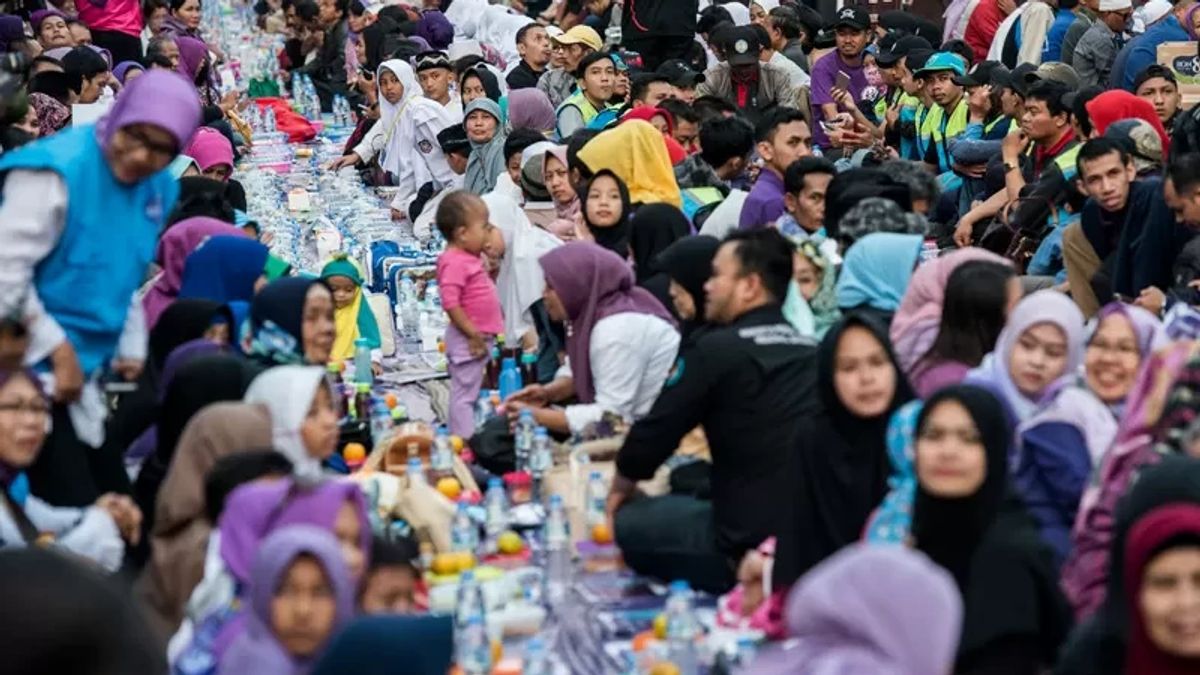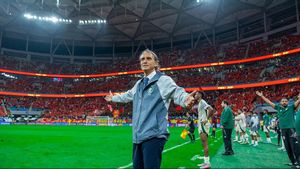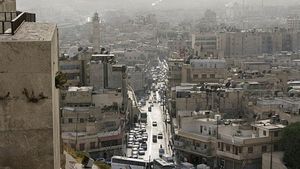JAKARTA - The government has relaxed restrictions on community activities during the Ramadan period this year, starting from allowing going home, congregational prayers in mosques, to breaking the fast together.
Specifically for breaking the fast together (bukber), Spokesperson for the COVID-19 Task Force, Wiku Adisasmito, reminded the public to implement health protocols. In addition, the public is asked not to talk or chat during bukber.
"If breaking the fast together, it is better to keep a sufficient distance and not to talk when we eat, the principle of cleanliness is to wash hands before hands so that we are clean and healthy," said Wiku in a virtual discussion, quoted on Tuesday, March 29.
In addition, Wiku said that worship activities at mosques could be held with restrictions according to PPKM level conditions in their area. The capacity of places of worship in areas that apply PPKM Level 1 is a maximum of 100 percent, Level 2 is 75 percent, and Level 3 is 50 percent.
Although there has been an easing of capacity, Wiku also reminded mosque congregations to minimize the transmission of COVID-19 during worship.
"As long as we worship at the mosque, make sure the mosque is not too full, and too long in the mosque so that the potential for transmission is large, the way the mosque is ventilated is better and it doesn't take too long in the mosque, speaking interaction is also relatively limited, those who don't speak only use a mask. "Wiku said. Wiku also hopes that every mosque will form an internal COVID-19 task force. They will be in charge of supervising the implementation of health protocols for every pilgrim who comes.
"For example, if someone doesn't wear a mask, they are advised to wear a mask and not talk, and the distance is also regulated if they are doing tadarus, so officers like that must be reminded," said Wiku.
Furthermore, Wiku revealed that from the easing of activities during Ramadan and Eid which was decided by the government, as long as the people continued to apply the precautionary principle regarding the transmission of COVID-19, he believed that this would not result in an increase in cases.
"As long as we carry out the fasting worship later on solemnly, maintaining proper health protocols but still performing congregational prayers and so on, the case should not increase," said Wiku.
"Even if the case goes up, the government will know when it happens and don't have to wait too long, immediately intervene in places where cases tend to rise," he added.
The English, Chinese, Japanese, Arabic, and French versions are automatically generated by the AI. So there may still be inaccuracies in translating, please always see Indonesian as our main language. (system supported by DigitalSiber.id)








